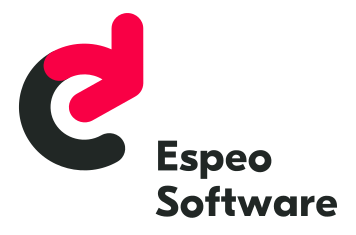Smart contracts are central to any business blockchain application. When we talk about blockchain and its business applications, one thing that today’s business leaders want to know is how smart contracts work and how to apply them in a business use case.
Smart contracts underpin many of the business use cases for blockchain technology and have proved to be one of the most beneficial tools related to blockchain and they enable the transfer of anything; from fiat current to goods to bitcoin, transported globally. As such it has critical consequences for the businesses using smart contacts for their business applications.
What are smart contracts?
As a business leader, you usually go through various kinds of contracts, on almost a daily basis. In general, these contracts are the agreements having specific terms and conditions, clearly stating the process for a transaction and the responsibilities and liability of the parties involved in it. If these same terms and conditions contained in a conventional contract are replaced by lines of code that self-execute once conditions are met. In an earlier post, we dove explored smart contracts explained.
Smart contracts are embedded in the blockchain, making the process decentralized, either wholly or partially. Once you deploy smart contracts, it is almost impossible to change its code. As per technical definition, smart contracts are digital contracts that process the transactions automatically when each of the terms of the encoded agreement is fulfilled by the transacting parties.
The background
One of the most promising things about blockchain technology is that since it’s a decentralized ecosystem that persists between all authorized parties, intermediates or middlemen are removed from the process, which saves time and high fees. Well-designed blockchain systems can be cheaper, faster, and safer than some traditional systems, that’s why governments, banks, and businesses are adopting blockchain to develop their processes and applications.
If we talk about the origin of smart contracts, Nick Szabo, a cryptographer and a legal scholar, recognized the potential smart contracts to be used in decentralized ledgers in 1994. As per their format, the contracts are converted to the computer code, saved and duplicated on the system and monitored by the networks of computers running blockchain nodes. This would also lead to ledger feedback like sending money and getting the product, good or service.
Tokens and smart contracts
Another factor to know to understand smart contracts is token distribution. For instance, an insurance firm can use the smart contracts for automating the release of healthcare claim amount based on conditions such as droughts, hurricanes, or other natural disasters. Or, when the cargo shipment arrives at the port of entry and the IoT sensors within the container validate that contents are packed and remained saved properly during the whole journey, a bill of lading is issued automatically.
Smart contracts are the basis for the transfer of digital tokens and cryptocurrency; the digital representation of the utility or physical asset. For instance, Ethereum blockchain tokens namely ERC20 and ERC721, themselves have smart contracts.
Why do we need smart contracts?
Let’s first talk about why business leaders need conventional contracts in place. The answer is quite simple. They don’t trust another party and the lack of trust among parties involved in the contracts to execute the contracts as required is not something new. For instance, would a CEO would trust a realtor to sell their commercial building without a prior contract with him, now would you? How about if you have never met the individual you are about to transfer money to on the internet?
Since smart contracts, use cryptography, they’re practically impossible to change, and self-execute, solving this problem. There are a lot of reasons why smart contacts are considered better than traditional agreements and contracts. Some of these are as follows:
- Smart contracts offer simplicity, real-time updates, and speed of execution, which traditional contracts cannot offer
- Smart contracts avoid redundancy of the centralized entities and intermediaries who usually contribute to increasing the risks
- Since there is no intermediary involved to regulate and monitor the transactions, it leads to lower fees and faster execution
- Smart contracts ensure self-execution accuracy as there is no delay in providing the mutually agreed incentives
- There is a guaranteed certainty, transparency, rightfulness, and safety of the process
For many business leaders, smart contracts are highly beneficial for making business collaboration less risky. They are used to agree on the decided terms and conditions as formed by the consent of both the parties. This decreases the risk of fraud and because there is no involvement of any third-party, the business can save huge on the associated cost.
How do smart contracts work?
Smart contracts work in a very different and smart way to ensure 100% transparency and accuracy. To know how smart contracts work, let’s have an example. Assume that you want to sell your property. The process of getting your property sold needs tons of paperwork as well as collaboration with many parties. Aside from the communication complexity, it also has the risk of fraud. At present, most of the property owners who want to sell their property make their way ahead by taking the service of real-estate agents or brokers. These agents or brokers deal with all their paperwork and market situation to sell their property at the best price. They serve as middlemen in the entire process and work on price negotiations and supervising the deal.
In these cases, you are unable to rely on that person you are dealing with this, the agencies offer escrow services that transfer the money from one party to another. Once the deal is finalized, the home seller must pay both to the agent and the escrow service as per the agreed percentage of commission. This way, homeowner incurs extra cost and bears more risk.
Use smart contracts. Using smart contracts for these cases can lead to more effectiveness by reducing this heavy burden. Smart contracts are formed to work on the condition-driven principle, which would resolve the ownership problem by transferring it to the buyer just when the financial, as well as other conditions, are agreed upon. In addition, when it comes to escrow services, smart contracts have the potential to replace those too.
Both property possession right and the money can be saved in a distributed system that can be seen by the parties involved, in real-time. As the money transfer will be viewed by all network participants, the possibilities of fraud are eliminated. In addition, there is no possibility of a middleman to be involved as the trust among the parties is not an issue anymore. All the works done by the real estate agent are coded into smart contracts, which saves significant fees for both the seller and the buyer.
Smart contracts and businesses
Smart contracts can:
- Work like ‘multi-signature’ accounts; hence the funds are spent only once the required percentage of parties agree
- Manage agreements among the users, for instance, if one buys insurance from another
- Offer utility to other contracts (Like the way software library works)
- Store information regarding the application, like domain registration information or membership records.
Smart contracts offer any benefits for almost all industry sectors including, cutting the overhead costs, providing high transparency, and saving a significant amount of time. While they are more secure, reliable, efficient and trustworthy than paper contracts, care must be taken to avoid the threats of code corruption and as the businesses move ahead and accept the digital processes, the awareness of various kinds of risks involved is integral too.
The implications for smart contracts in business
The potential of smart contracts is not confined. They are used for small regular contracts as well as contracts for the businesses and governments too. They let buyers and traders track their purchase in the supply chain cycle; a factor that boosts trust.
While third-parties such as lawyers, government bodies or other intermediaries make a hole in people’s pockets in the shape of high fees for making these agreements; smart contracts save this cost by removing the need for these intermediaries. When it is about using smart contracts, all you need to do is see the code before the implementation, everything after that is executed in an electronic way. Smart contracts offer users an opportunity to make their routine processes and transactions more automated and streamlined.
What makes the foundation of smart contracts include business rules, interfaces, and data. With evolving technology, the users would need to update the smart contracts from time to time to avoid potential compatibility issues with the operating systems and execute their directed functions properly. Though smart contracts still seem to be in their developing stage, they might encounter some vulnerability attacks. To make smart contracts a part of the business and our daily life, both, the platforms to develop smart contracts and cybersecurity practices must be updated timely.
For more on how to best apply smart contracts into your business model, drop us a line. Schedule a short discovery call and let us work it out.
Related posts




